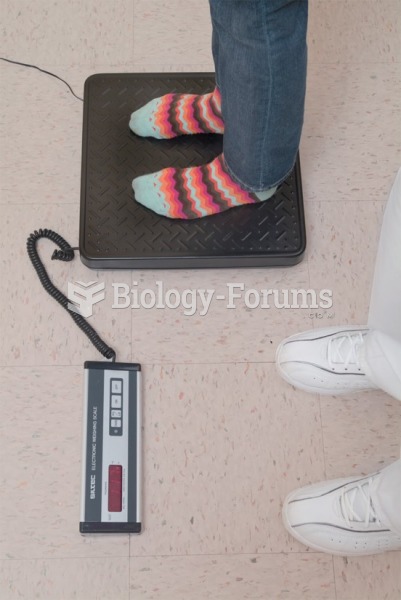|
|
|
Human stomach acid is strong enough to dissolve small pieces of metal such as razor blades or staples.
The FDA recognizes 118 routes of administration.
Opium has influenced much of the world's most popular literature. The following authors were all opium users, of varying degrees: Lewis Carroll, Charles, Dickens, Arthur Conan Doyle, and Oscar Wilde.
In Eastern Europe and Russia, interferon is administered intranasally in varied doses for the common cold and influenza. It is claimed that this treatment can lower the risk of infection by as much as 60–70%.
The senior population grows every year. Seniors older than 65 years of age now comprise more than 13% of the total population. However, women outlive men. In the 85-and-over age group, there are only 45 men to every 100 women.
 Nurses may collaborate with social workers, physicians, and other members of the health care team to
Nurses may collaborate with social workers, physicians, and other members of the health care team to
 Patients with physical special needs, such as a wheelchair, need to have this documented in their he
Patients with physical special needs, such as a wheelchair, need to have this documented in their he
 Effleurage to entire arm to reconnect and transition to the chest. Apply effleurage with moderate ...
Effleurage to entire arm to reconnect and transition to the chest. Apply effleurage with moderate ...




